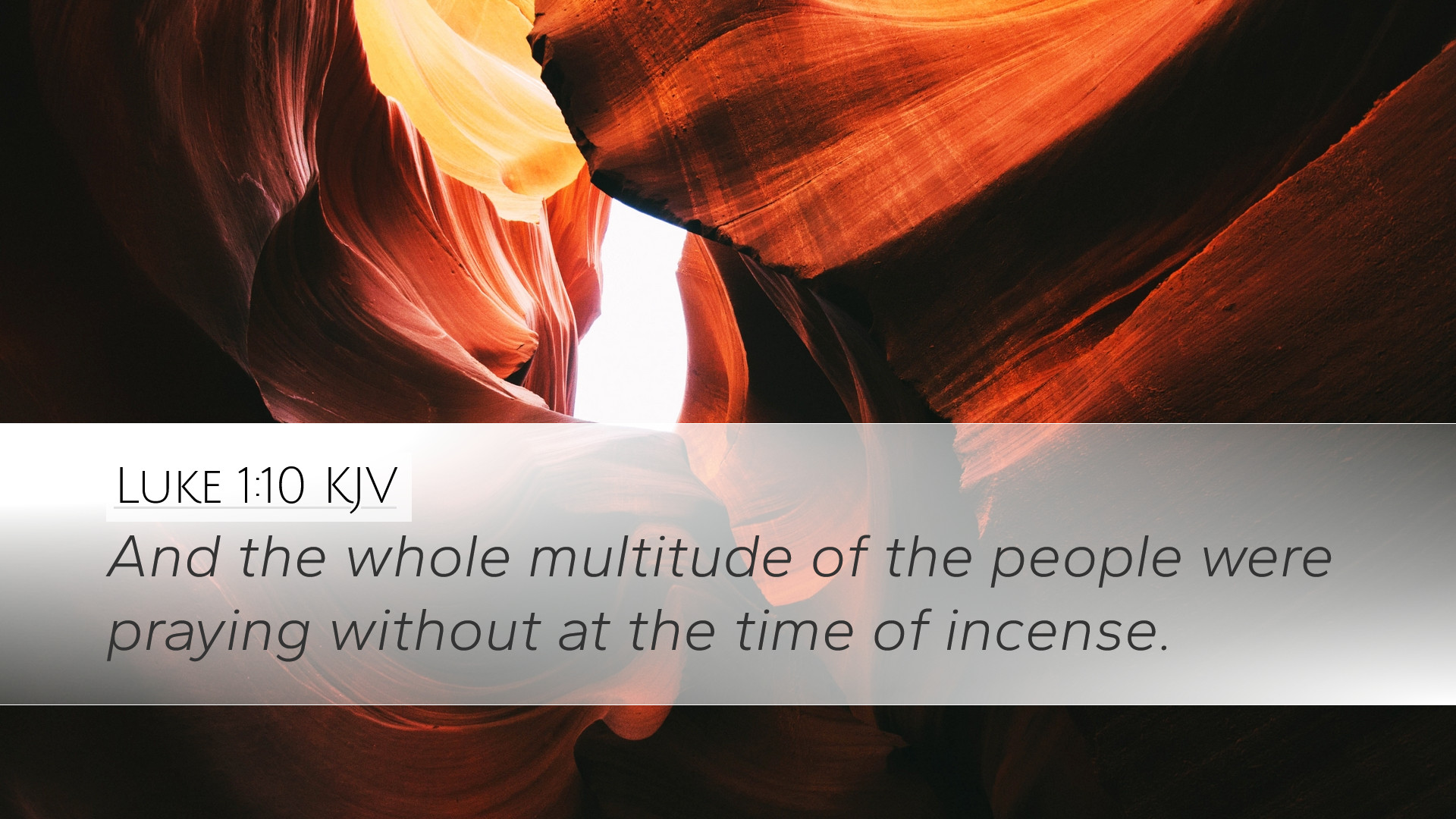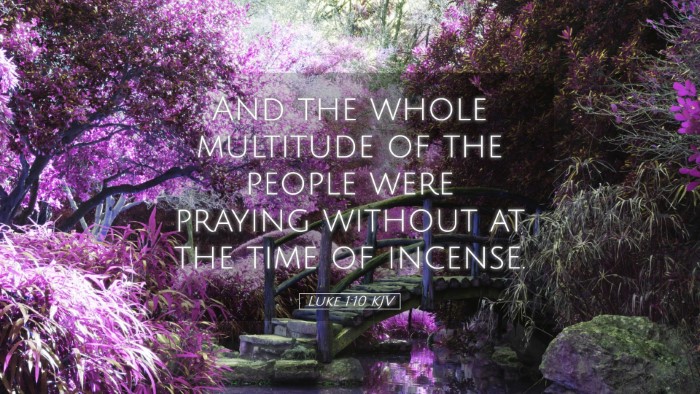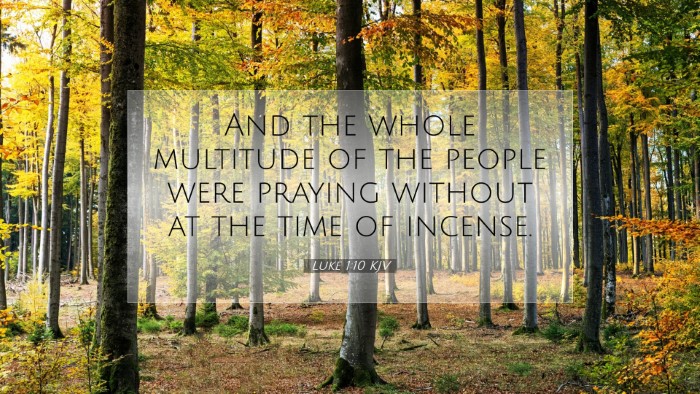Bible Commentary on Luke 1:10
Verse Context: Luke 1:10 states, "And the whole multitude of the people were praying outside at the hour of incense." This verse serves as a pivotal part of the narrative leading up to the birth of John the Baptist, highlighting the faithful prayers of the people during an essential religious ritual.
Introduction
The context surrounding this verse is of great importance in understanding its implications. Luke's Gospel emphasizes prayer and divine intervention, and this particular moment encapsulates the essence of that theme. It reflects a beautiful intersection of human devotion and divine providence.
Insights from Public Domain Commentaries
Matthew Henry's Commentary
Matthew Henry notes that the "whole multitude" praying reflects a comprehensive and profound moment of communal devotion. The hour of incense was a significant time in the temple's worship, symbolizing prayers ascending to God. Henry emphasizes the following points:
- The Importance of Corporate Worship: Henry highlights that communal prayer has a special efficacy in drawing near to God, suggesting that the church's collective heart can provoke God’s attention.
- Symbolism of Incense: The incense represents the prayers of the saints, as illustrated in Revelation 5:8 and 8:3-4. This connection signifies the acceptance of their prayers before God, assuring believers of God's gracious listening.
- The Timing of Prayer: The verse notes "the hour of incense," which Henry associates with the faithful Jewish tradition of prayer being both systematic and reverential, invoking the anticipation of God's response to their supplications.
Albert Barnes' Notes on the Bible
Albert Barnes expounds upon the nature of the "multitude" and the significance of their prayers. He posits that:
- The Role of Priests: The priests, who performed the incense offering, were conduits for the people’s prayers, emphasizing the priestly function in bridging the divine and human realms.
- Unity in Prayer: Barnes notes the power found in unified prayer, suggesting that the fervent prayer of many can lead to significant divine actions.
- Contextual Understanding: He emphasizes the importance of understanding this event as part of the larger narrative of God’s plan, where the prayers of the righteous lead to the opening of Heaven's doors.
Adam Clarke's Commentary
Adam Clarke provides a thorough exegesis of this passage, bringing additional depth to its meaning. He asserts:
- Historical Context: Clarke explains that the timing of this prayer aligns with historical Jewish practices, noting that the prayer during the hour of incense was a time of great expectation among the faithful.
- Significance of the Divine Response: He highlights that the people’s prayers anticipated God's intervention, which would soon manifest through the announcement of Zechariah’s angelic visitation.
- Lessons on Prayer: Clarke notes that we see a vital lesson on persistent prayer; even when there seems to be silence from God, the prayers of the faithful are impactful and crucial in God’s overarching plan.
Theological Implications
The theological implications drawn from Luke 1:10 offer significant insights into the nature of prayer and God's engagement with humanity:
- Prayer as a Form of Worship: The act of praying during the hour of incense underscores the understanding of prayer as an integral element of worship, bringing believers into closer communion with God.
- God’s Sovereignty and Human Agency: This scene exemplifies the tension and harmony between divine sovereignty and human agency: while people pray faithfully, it is God who ultimately brings about His purposes in history.
- Anticipation of Divine Action: Just as the people awaited an answer to their prayers, contemporary believers can draw strength and hope in their prayer life, trusting that God, too, hears and will respond in His timing.
Application for Today’s Believers
The lessons derived from Luke 1:10 can be profoundly applied to the lives of modern believers:
- Commitment to Prayer: This passage encourages believers to actively participate in prayer, both individually and corporately, recognizing that such devotion can lead to divine revelations and interventions.
- Community Focused Worship: The involvement of the multitude illustrates the importance of community in faith practices, urging churches to cultivate environments where collective prayer and worship flourish.
- Trust in God’s Timing: Believers are reminded to trust in God's timing for answers, holding onto the promise that He hears every prayer offered in faith.
Conclusion
In summary, Luke 1:10 encapsulates a moment of great spiritual significance, intersecting prayer, worship, and divine intervention. Insights from Matthew Henry, Albert Barnes, and Adam Clarke provide a well-rounded understanding of this transformative scriptural moment, offering lessons that resonate deeply with the life of faith. Aspiring pastors, theologians, and students can draw from this passage profound insights into the nature of prayer and the community's role in divine expectation.


